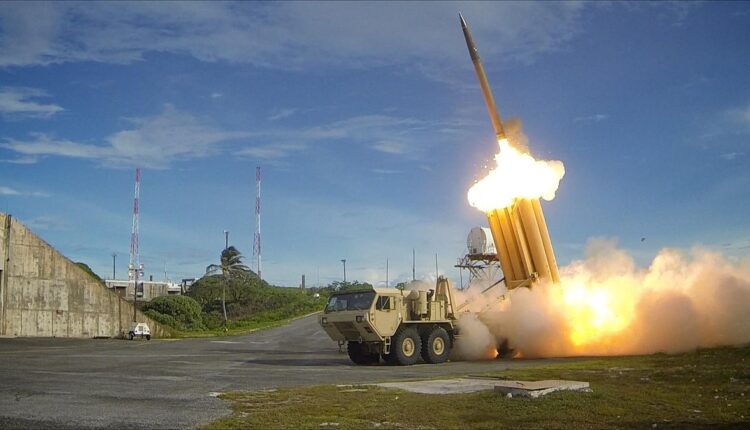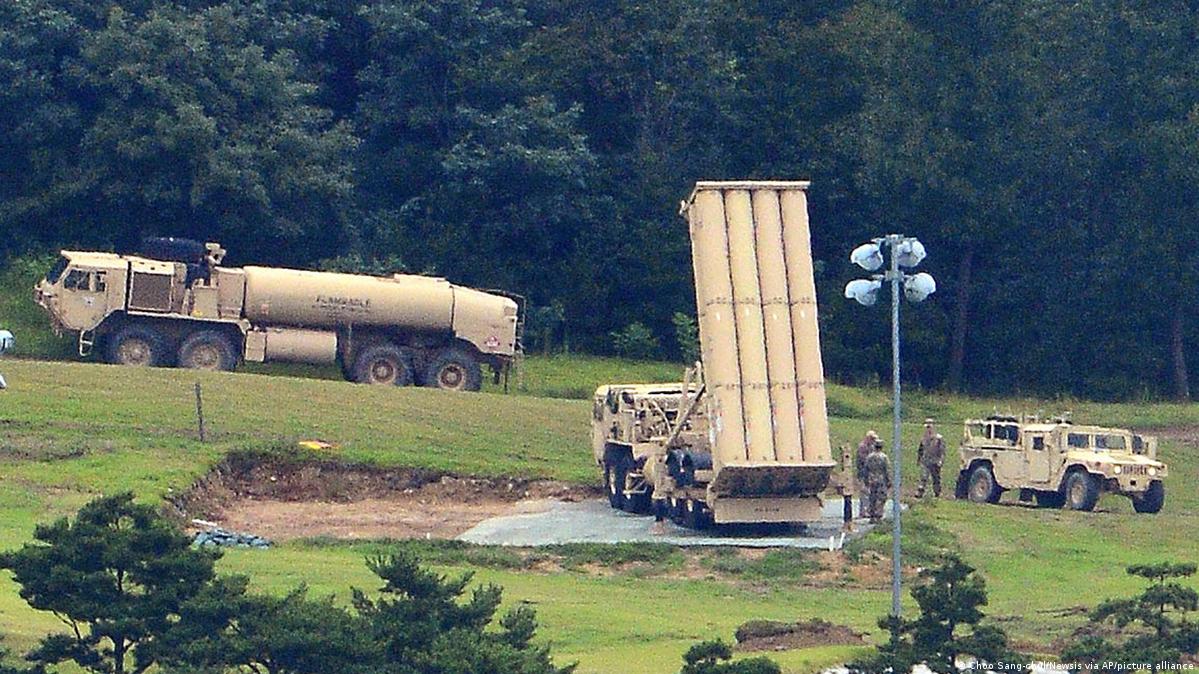US Granted Approval to Deploy THAAD in South Korea, Provoking “Displeasure, Concern” from China
The radar utilized by the Terminal High Altitude Area Defense (THAAD) possesses high capabilities, with a missile launch detection range between 1,500 km and 2,000 km. This is a source of concern for Beijing because, if the THAAD radar is directed towards China, it has the capability to detect any form of ballistic missile launch by China or monitor all military activities in the nation.


(DEFENCE SECURITY ASIA) — The United States recently received approval to deploy the Terminal High Altitude Area Defense (THAAD) anti-ballistic missile system in South Korea, eliciting expressions of ‘anger and concern’ from China.
The “green light” was obtained following an environmental impact assessment by South Korean authorities, stating that the placement of the THAAD ballistic missile defense system in the East Asian country does not increase the level of electromagnetic radiation.
Local residents near the Seonju Air Base in South Korea oppose the deployment of the THAAD missile defense system due to concerns about its impact on their health.
The decision of the environmental impact assessment will allow the United States and South Korea to proceed with the construction of infrastructure for the deployment of the THAAD missile defense system in Seongju.
However, local residents in Seongju are unwilling to accept the decision of the environmental impact assessment, claiming that the study was conducted hastily, and they will continue their protests against the deployment of the guided missile defense system.

The United States and South Korea aim to deploy the THAAD missile defense system at the Seongju Air Base, approximately 200 km from Seoul, to address the threat of ballistic missile launches from North Korea.
The actions of the United States and South Korea in placing the THAAD missile defense system are not only opposed by local residents but have also unsettled China and raised concerns among defence establishments in Beijing.
So, why is Beijing concerned about the presence of the THAAD missile defense system in South Korea, even though its primary function is to address the threat of ballistic missiles from Pyongyang?
THAAD is a guided missile defense system developed to intercept ballistic missiles at short, medium, and long ranges while they are still in mid-flight, with an operational range of up to 200 km and an altitude of up to 150 km.
What concerns China is the high-power X-Band AN/TPY-2 radar used by the THAAD system.
The radar system employed by THAAD exhibits advanced capabilities, featuring a missile launch detection range spanning from 1,500 km to 2,000 km.

Beijing is worried that if the THAAD radar is directed towards China, it can detect any form of ballistic missile launch by the country or monitor all military activities in the nation.
The high-power radar of THAAD indirectly has the capability to monitor a significant portion of China’s military facilities.
China does not want the United States to use South Korea to spy on them, and that is why they vehemently oppose Washington’s actions in deploying the THAAD system with its high-power radar near their borders.
As early as 2016, China strongly opposed South Korea’s decision to deploy the U.S.-owned THAAD system in the country, imposing economic and cultural restrictions on Seoul.
Beijing’s economic restrictions have caused significant losses to South Korean companies.
The economic and cultural restrictions imposed by China on South Korea were only lifted in 2017 when the South Korean President at the time agreed not to allow the deployment of the THAAD system. — DSA

DEFENCE SECURITY ASIA APPS
To advertise contact: haikalhamas73@gmail.com

Comments are closed.